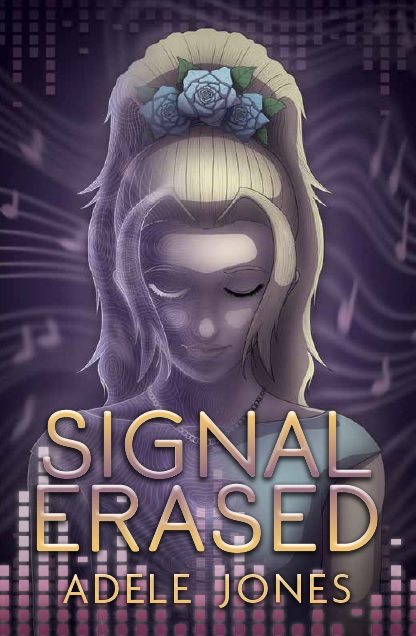The very first review of Signal Erased was reasonably generous, but the reviewer questioned “… a religious tone that may be unexpected for some readers …”
Is there a place for God in science fiction?
The reviewer’s tone made it clear they found “godly rhetoric” in the story uncomfortable, highlighting a scene when the heroine, Anna, asks her potential rescuer, Rennie, whether he’s ever asked God about healing for his long-term health condition. The lead to this highlight was “unfortunately”. And that’s fair, given that is the reviewer’s opinion, but clearly they find the idea of supernatural healing and intervention peculiar.
I actually welcome discussions with readers about my stories, including questions of why certain elements or incidents have been included. That said, I admit when writing Signal Erased, I hesitated depicting Anna’s worldview as being openly Jesus-centred, given how this might be received by some of my readers.
Given I write near-science fiction, my stories encompass futuristic technologies threaded around contemporary scenarios. I suppose I could be more allegorical and nuanced, but I allow my characters to wrestle with big life-questions we all encounter. These questions include faith, identity, self-worth, loss, relationship breakdown, health crises and more. To me, these are fundamental questions we all must answer for ourselves. However, my past heroes have come from a sceptical position when it comes to faith and “God questions”.
Anna is the first character I’ve written who has settled her spirituality. Yet, she has also misconstrued her beliefs to cover a gaping wound of denied grief, instead, constantly striving to be the ultra-good girl. But why include the “Jesus love stuff” (as Rennie calls it), knowing it may raise brows and maybe even lose me some readers?
 Whether we know it or not, we all have beliefs, faith and a worldview we live by. I understand not every person’s religious experiences are positive—some are crushingly detrimental. It makes me sad, even angry, when I learn of a searching heart who has been taken advantage of in what has become termed spiritual abuse. So why broach spirituality in my stories?
Whether we know it or not, we all have beliefs, faith and a worldview we live by. I understand not every person’s religious experiences are positive—some are crushingly detrimental. It makes me sad, even angry, when I learn of a searching heart who has been taken advantage of in what has become termed spiritual abuse. So why broach spirituality in my stories?
The fact is we are spiritual beings—whether people ration this as a survival mechanism, supernatural, or otherwise. It is my experience we are heard, seen and known; purposed in this moment of time by a higher power, who delights in spending time with us and sharing his heart in a very personal way. But, I believe, often our God-image gets distorted by our human filters and put in a box of regulations and restrictions we are comfortable with. Like Anna’s “always play it safe” perspective.
To purposely exclude this from a story would be to me, well, unnatural. And yet, we often do. In Anna’s case, it is very much a part of who she is and she simply wouldn’t have been the same character without this.
Something I find curious is readers seldom question or experience discomfort when an author includes spirituality from a non-Christian or even occultic angle. Although this is still embracing the supernatural and depicting faith (in powers of darkness), I personally find these stories difficult, having heard accounts of people who have suffered through devastating ritual abuse. And yet, the fact there is such acceptance of these stories reiterates our acceptance of the supernatural and spirituality as an intrinsic part of our make-up.
Let’s be honest—no one likes “preachy”. If I’m writing a scene where a character is wrestling with spiritual questions, I try letting it flow in a way that is natural and accessible, whilst consistent with the character. I don’t always get this balance right, but I am comfortable letting my characters explore these issues, even if they remain unresolved. After all, they’re still figuring out life for themselves.
That said, I’ve seen too much to not believe there is more to life than the physical world around us. What about you? I’d love to hear your thoughts
Hi Adele
I think that intersection of science and faith is really interesting, so thank you for addressing it in your story. As you say, none of us like ‘preachy’, but I’ve never found your writing to be like that. More and more people are realising that the spiritual side of life is relevant, and I think it’s important to show real people grappling with those issues. Science is full of ethical dilemmas, and it’s hard to fully appreciate those without bringing in an element of faith. I’m looking forward to finding out how your character deals with that in your latest book.
Appreciate you taking time to share your thoughts, Nola. I find that intersection interesting too. 🙂 Likewise, I recognise that for some readers even the very idea of the supernatural/spiritual outside a fictional context is really challenging. As a writer I am drawing from my personal experiences and worldview, but want to give space for questions to be raised and explored in a way that’s accessible for my readers and still allows for an enjoyable story experience, even if it’s not their own worldview and belief system.